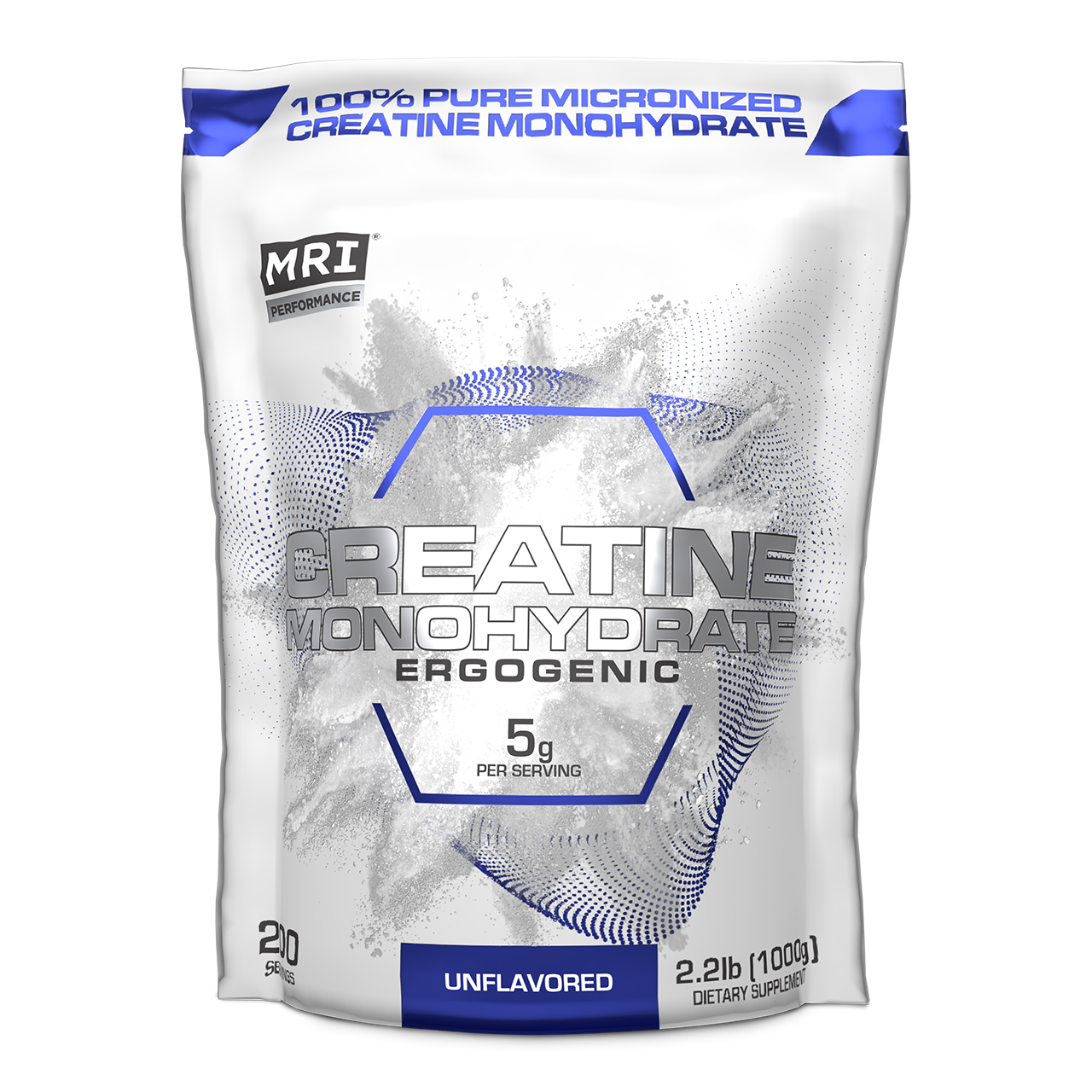Everything You Need to Know About Creatine Monohydrate

Creatine monohydrate is one of the most extensively researched and widely used supplements for enhancing athletic performance. A recent analysis by the Stanford Lifestyle Medicine team underscores its potential benefits, not just for professional athletes and bodybuilders but also for individuals across different fitness levels and age groups.
What Is Creatine?
Creatine is a combination of amino acids that the human body creates in the liver and kidneys. It is then distributed to muscles and the brain, where it is stored for energy reserves. When you contract your muscles, your body breaks off a molecule from a compound called adenosine triphosphate (ATP). However, this process transforms ATP into adenosine diphosphate (ADP), which cannot be used as an energy source. Creatine phosphate provides the necessary phosphate molecule to turn ADP back into ATP, enabling sustained energy for muscle contractions.
Creatine is also available as a dietary supplement and plays a critical role in powering quick and intense muscle contractions. After digestion, creatine-phosphate is stored in skeletal muscles and utilized during high-intensity activities. This rapid conversion of ADP to ATP drives fast-twitch muscle contractions, essential for movements like sprinting, weightlifting, and other explosive exercises.
Benefits Beyond Bodybuilding
There have been numerous convincing studies suggesting that creatine consumption can improve physical performance, particularly in interval training—short, highly intense bursts of energy with rest periods. The increased creatine in the muscles reduces fatigue and enables the exertion of more energy, leading to longer and more intense physical activity, and ultimately enhanced muscle strength and mass.
"What’s nice about creatine, especially compared to other supplements, is how much it has been studied. It has robust, promising data that shows it can really improve athletic performance and muscle composition," says Matthew Kaufman, MD, a member of the Stanford Lifestyle Medicine Exercise and Movement research team. "Plus, it can help muscle growth and performance for all different types of people."
Creatine for Plant-Based Athletes
Vegetarian and vegan athletes may particularly benefit from creatine supplementation. Research indicates that plant-based individuals, who typically have lower baseline creatine stores, can experience significant improvements in muscle power output and lean muscle mass with supplementation.
Creatine for Older Adults
Creatine isn’t just for athletes. As we age, the risk of muscle sarcopenia increases, leading to reduced muscle vitality and a higher likelihood of falls and injuries. Research published in the Journal of Clinical Medicine suggests that creatine supplementation can support muscle maintenance and provide anti-aging benefits.
Who Should Take Creatine?
Creatine can be a boon for athletes who use fast-twitch muscles—muscles activated during brief but intense bursts of physical activity. Vegetarians may notice a marked improvement in performance with creatine supplementation because they aren't getting noteworthy amounts of creatine in their diets. Furthermore, clinical studies have demonstrated success specifically with creatine monohydrate, making it the preferred form. It is best taken in powder form, combined with fruit juice to elevate insulin levels and enhance absorption.
How Much Creatine Do You Need?
The International Society of Sports Nutrition (ISSN) recommends the following dosing strategy:
- Loading Phase: For the first week, take 5 grams of creatine four times per day (20 grams total daily). This phase helps saturate the muscles with creatine.
- Maintenance Phase: After the loading phase, take 3-5 grams daily to maintain muscle stores. Larger individuals or athletes with higher muscle mass may require up to 10 grams per day.
Why Is Water Important When Taking Creatine?
Taking water with creatine is essential for several reasons:
- Hydration: Creatine draws water into your muscle cells to enhance muscle hydration, which supports their function and growth. Without adequate water intake, you might experience dehydration, which can lead to cramps and reduced performance.
- Efficiency: Proper hydration ensures that creatine is effectively absorbed and transported to your muscles, maximizing its benefits.
- Avoiding Side Effects: Insufficient water intake while using creatine can increase the risk of side effects like bloating or gastrointestinal discomfort. Drinking water helps mitigate these issues.
- Electrolyte Balance: Creatine-induced water retention in muscles can shift your body's electrolyte balance, and staying hydrated helps maintain equilibrium and prevents complications like muscle cramps.
Experts recommend drinking plenty of water throughout the day, especially during the loading phase of creatine supplementation, to support optimal performance and health.

Conclusion
Creatine monohydrate is a well-researched and effective supplement for enhancing muscle strength and performance. Whether you’re a power lifter, a CrossFitter, or someone looking to improve overall fitness, creatine offers significant benefits. For vegetarians, older adults, or those serious about building muscle, creatine can be an invaluable addition to your regimen. Click here to shop MRI Performance Creatine.









